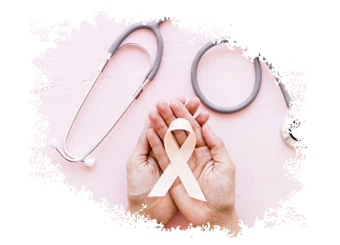
Cancer awareness is a crucial aspect of the global effort to combat cancer. It involves educating individuals, communities, and societies about cancer, its risk factors, prevention, early detection, and available treatment options. Increased awareness can lead to earlier diagnosis, better outcomes, and a reduction in the overall burden of cancer. Here are some key aspects of cancer awareness:
-
Understanding Cancer Types: Awareness campaigns provide information about the various types of cancer, such as breast cancer, lung cancer, prostate cancer, and more. Each type may have unique risk factors, symptoms, and recommended screenings.
-
Cancer Risk Factors: People need to be aware of the factors that can increase their risk of developing cancer, including lifestyle choices (e.g., smoking, diet, physical inactivity), exposure to carcinogens (e.g., UV radiation, asbestos), and genetic predisposition.
-
Early Detection: Promoting awareness of the importance of regular screenings and early detection methods like mammograms, colonoscopies, and skin checks can significantly improve the chances of successful cancer treatment.
-
Symptom Recognition: Understanding the common signs and symptoms of cancer, such as unexplained weight loss, persistent cough, changes in skin moles, and unusual lumps or growths, can lead to earlier medical evaluation and diagnosis.
-
Prevention: Cancer prevention involves adopting a healthy lifestyle, including maintaining a balanced diet, engaging in regular physical activity, limiting alcohol consumption, and avoiding tobacco use. Awareness campaigns can provide guidance on making these positive lifestyle choices.
-
Support and Resources: Raising awareness about cancer also involves informing individuals about available resources, support groups, and healthcare services for cancer patients and their families.
-
Global Initiatives: Many organizations, including the World Health Organization (WHO) and cancer research foundations, work to increase cancer awareness on a global scale. World Cancer Day, celebrated on February 4th each year, is one example of an international effort to raise awareness about cancer prevention and treatment.
-
Advocacy and Fundraising: Cancer awareness often goes hand in hand with advocacy efforts and fundraising campaigns. These activities help fund research into cancer treatments, support services, and public health initiatives.
-
Reducing Stigma: Cancer awareness campaigns can also help reduce the stigma associated with cancer, encouraging open discussions and supportive communities for individuals living with the disease.
-
Early Education: Starting cancer education at a young age through school programs and community events can instill lifelong habits of cancer prevention and awareness.
Overall, cancer awareness plays a pivotal role in reducing the impact of cancer on individuals and society. It empowers individuals to take control of their health, make informed decisions, and seek timely medical care when needed. Additionally, it fosters a sense of solidarity and support for those affected by cancer and contributes to ongoing efforts to find a cure.